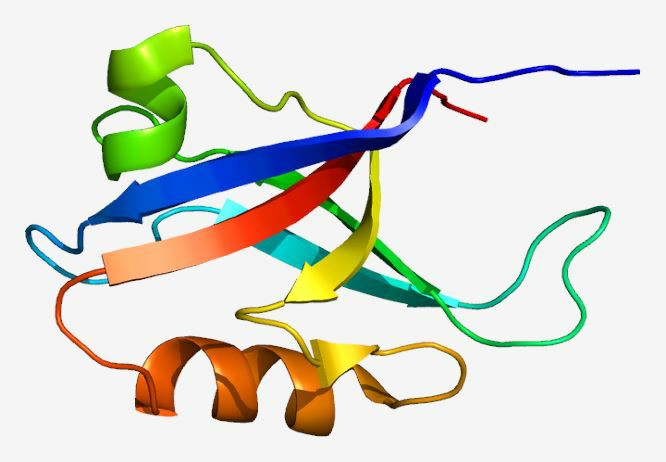AFDN and Associated Diseases
Gene therapy is an attractive topic in preventing or treating acquired and genetic diseases. Creative Biolabs is a world-class biotechnology company and we provide optimal and feasible strategies for your questions in the field of gene therapy.
Overview of AFDN
Adherens Junction Formation Factor (AFDN, also known as Afadin and MLLT4) is a protein encoded by the AFDN gene in humans. AFDN is a multi-domain protein and is associated with a series of cellular events in embryogenesis. AFDN is a member of the adhesion system and plays an important role in the organization of interneuronal, homotypic, and heterotypic cell-cell adherens junctions together with the E-cadherin-catenin system. The different isoforms of alternatively spliced transcript variants of AFDN have been identified.
 Fig.1 The structure of AFDN. (Wikipedia)
Fig.1 The structure of AFDN. (Wikipedia)
AFDN in Disease
AFDN plays an important role in cell junction organization and immune cell transmigration. Diseases related to AFDN include leukemia, cleft palate, and cancer such as breast cancer.
- Cleft palate
Downregulation of AFDN is associated with the induction of cleft palate (CP). CP is caused by the failure of secondary palatogenesis in the process of development and is one of the most common congenital diseases. Many human genetic syndromes that have similar features to CP are associated with gene mutations in the pathway of cell-cell adhesion. Lentivirus-mediated knockout of AFDN, as a cell adhesion-associated protein, induces a high penetrance of CP by the palatal shelf elevation delay. The cytoplasmic tail of nectin forms an obligate interaction with AFDN and both form the nectin-AFDN cell-adhesion complex, which links the cytoskeleton to the adherens junction and promotes the proper palate closure.
- Breast cancer
AFDN together with Claudin-2 promotes breast cancer (BC) metastasis. According to the research experience of liver cancer and metastatic BC, AFDN, one of several PDZ domain-containing proteins, can interact with Claudin-2 which has the PDZ-binding motif and plays a critical role in BC metastasis. Knockout of AFDN in the BC cell line impairs the colonies formation in soft agar and the metastasis to the lungs or liver. Immunohistochemical analysis of metastatic BC reflects that high expression of Claudin-2 and AFDN in primary tumors is associated with poor overall survival, disease-specific survival, and relapse-free survival. The downstream signals of the Claudin-2/AFDN complex enable the efficient formation of BC metastases.
Creative Biolabs has years of experience in providing customer and one-stop services in the field of gene therapy. We establish optimized platforms and well-trained teams devoted to gene therapy research and are available for your convenience. Please feel free to contact us for more details about your AFDN project.
Reference
- From Wikipedia: Emw, CC BY-SA 3.0, https://commons.wikimedia.org/wiki/File:Protein_MLLT4_PDB_1t2m.png.
